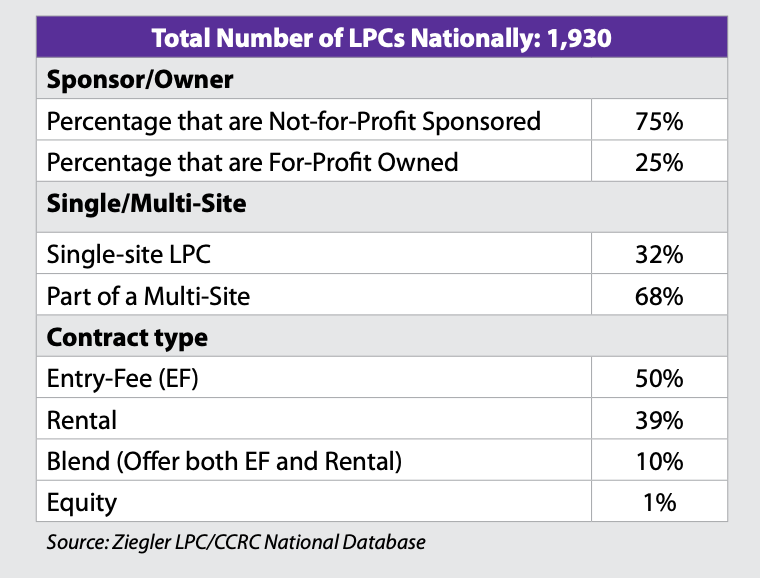
Removing skilled nursing spaces should be part of wide considerations for life plan and continuing care retirement communities’ (CCRCs) looking to succeed, says a new Ziegler report.
“Adaptability and innovation have been foundational to these communities for many decades. Just as in the past, providers continue to adjust as needed based on current trends and what is needed to be successful moving forward,” wrote Lisa McCracken, director of senior living research and development at Ziegler.
The report, which laid out a model on how life plan communities and CCRCs can be successful in the future, found that skilled nursing changes were among the most common. This has been especially true, considering the amount of disruption during the COVID-19 pandemic.
McCracken noted that many providers have either downsized their nursing beds — mostly through converting semi-private rooms to private — or have fully exited the skilled nursing space altogether.

“The full exit of nursing on the campus of [a life plan community] has taken a number of forms. In a number of these instances, certain states allow for a great deal of flexibility within the assisted living realm, thus some providers have gone to a higher-level assisted living,” McCracken wrote.
“This is particularly true in the western region of the U.S. Additionally, it should be noted that a number of newly developed communities in recent years are being built with IL/AL only, without nursing beds onsite,” she added.
Ziegler also found that name changes, contract diversification and expansion efforts were common among the most successful life plan communities and CCRCs over the last several decades.
“Life plan communities generally benefit from larger scale, which can be accomplished in a number of ways. It is not uncommon for communities to acquire adjacent parcels of land for expansion purposes,” McCracken wrote.
“Another approach to garnering greater scale is through affiliation or acquisition. Just as other sectors have gradually consolidated over time, we are seeing this trend unfold as well, some markets to a greater extent than others,” she added.
“[C]hange is inevitable and today’s communities will need to be focused on success in the future, which foundationally requires adaptation,” McCracken concluded.





